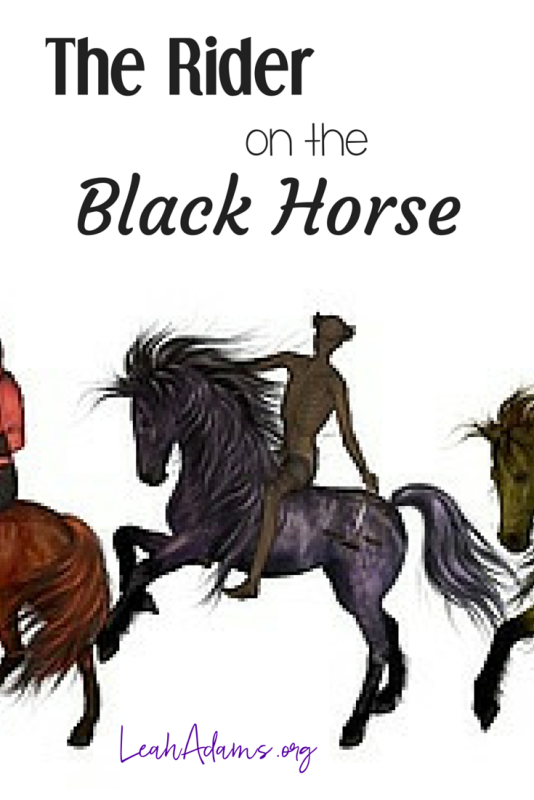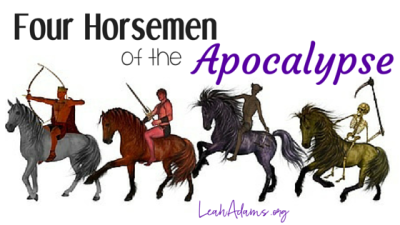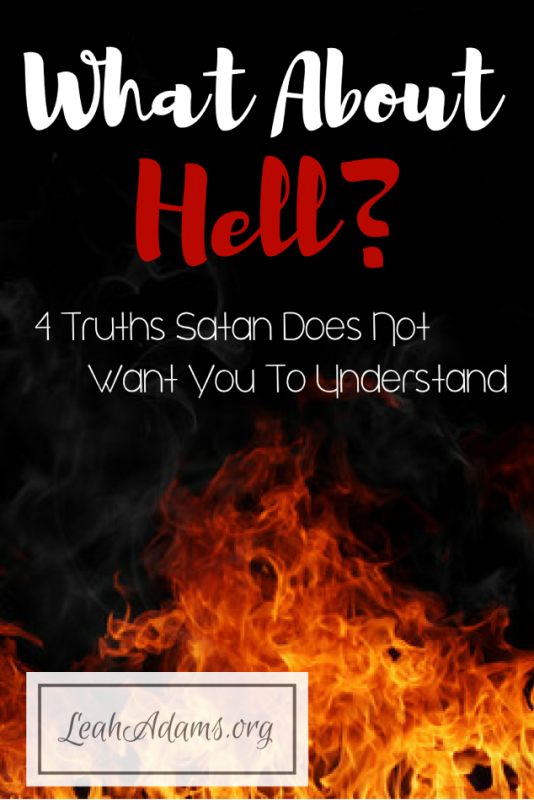Welcome back to our study of the book of The Revelation. We have worked our way through the first five chapters, and are now in chapter six where we are eye witnesses to what takes place when Jesus opens the seven-sealed scroll. The events of the first eight verses of chapter 6 are commonly referred to as ‘the four horsemen of the Apocalypse’. In verses 1 and 2 a rider on a white horse was loosed to conquer. Verses 3 and 4 saw a rider on a red horse loosed to take peace from the earth. Today, we watch as a third rider is loosed.
In case you have not been with us on this journey, I want to remind you that I am offering a FREE printable that goes along with each chapter of the study. Go HERE to download the printable for chapter 6. I also have a private Facebook group for the study. It is there that further conversation takes place about the study, and I link to each post in the series on the Facebook group, making it easy to find previous posts. If you are on Facebook and would like to be added to the Facebook group, please send an email to info@leahadams.org. I will send you a link that you will need to click on in order to be added.
In Revelation 6: 5 and 6 (ESV) we read:
5 When he opened the third seal, I heard the third living creature say, “Come!” And I looked, and behold, a black horse! And its rider had a pair of scales in his hand.
6 And I heard what seemed to be a voice in the midst of the four living creatures, saying, “A quart of wheat for a denarius, and three quarts of barley for a denarius, and do not harm the oil and wine!”
At first glance, the meaning of this set of verses is not immediately obvious to those of us breathing earth’s air in 2016. If we had lived in the first century, however, the meaning would have been frighteningly clear. Let’s dig in.
The first part of verse 5 is a repeat of verses 1 and 3, only differing in the numbers of the seal and creature. What is different is that the horse is black and the rider holds a pair of scales in his hand. The purpose of a scale in antiquity was to weigh grain and other consumables. This scale was not a scale like we know today. Rather, it was more of a balance where an established weight would be placed on one side of the balance and the item being purchased would be placed on the other side. When both sides of the scale were hanging at the same height, the item being purchased equaled the amount of the weight on the other side. Here is a picture of what the scale might have looked like.
As we move on to verse 6 we find another voice speaking of wheat, barley, denarius, oil, and wine. Let’s begin with the denarius.
The denarius (denarii, plural) was a silver coin struck by Rome from around 211 BC to 244 AD. Originally, it was similar to the U.S. 10 cent coin, the dime, although by the end of its production inflation had devalued it tremendously. The denarius was an accepted amount of pay for a day worker according to Jesus’ parable of the laborers in Matthew 20.
With the breaking of the 3rd seal, the earth experiences inflation and famine unlike anything ever known. While a denarius was the wage for an entire day of work, in the latter days, it will only buy a quart of wheat, which is barely enough to feed one person, much less a family. This depth of inflation and famine have probably been seen in limited places around the world, but never on the scale it will be experienced in the end times.
We are also told that the rider on the black horse is instructed not to harm/damage the oil or wine. The Greek word used for harm or damage means injure or hurt. It appears that God is protecting some things, at least for a time, during this period. Those who can afford oil and wine will be able to get them.
As we close today, let’s stop and consider the condition of the earth at this point. Antichrist has been loosed to conquer, which means that there are probably people who are resisting him. This brings worldwide war to the earth. War brings bloodshed and violence, as well as inflation, famine, and starvation. Not a pretty picture. Unfortunately, next week we will see it grow worse.
My prayer is that this study of the book of The Revelation is enlightening you, encouraging your faith, and strengthening your spiritual backbone for the coming days. Let’s engage.
- What have you learned in our study of the first three horsemen of the Apocalypse?
- What has challenged your faith?
- Do you have differing thoughts and interpretations about chapter 6? If so, I would love for you to share them here.











